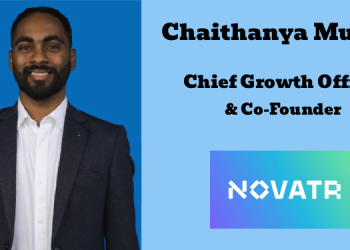‘Build mechanism to call out and check unconscious bias’

I believe one of the things that organisations must do that will make a huge difference when it comes to making workplaces inclusive, diverse and equal is proactively addressing the unconscious, and often unchallenged, bias that creeps into workplace interactions and decision making. How often do we see this unconscious bias play out at workplaces in the form of gender stereotyping, maternal bias, microaggressions, the famous glass ceiling, unequal pay and more.
The need of the hour is to raise awareness of the prevalence of this unconscious bias that has become normalised at the workplace. Do this through training, one-on-ones and campaigns. Build in a mechanism where people across the organisation are given the authority to and are appreciated for calling out and checking instances of unconscious bias against women without any fear of repercussions. This can help create a more equitable and inclusive culture for women at the workplace.
– Ruchira Kamat, Chief Revenue Officer, upGrad for Business
‘Cultural inclusion starts at the top’

Some of the simple steps as a business leader to promote an inclusive company culture is to understand that communication and involvement matter most when promoting diversity. Such practices will open a broad avenue where everyone feels important and heard.
First and foremost, cultural inclusion starts at the top – business leaders must display inclusive behaviour. Everyone must feel at ease, secure, and free to be who they are at work. Diversity is an essential issue for any modern business, but it’s not enough to hire people of different nationalities, races, genders and sexual orientations. It is necessary to seek employee feedback on improving the company’s diversity and inclusion in the workplace. These efforts lead to increased productivity and, ultimately, increased revenue.
As with all aspects of organisational culture, creating and fostering a sense of belonging in the workplace begins with leadership. The key is to have clear communication with your employees.
As such, diversity and inclusion, and equality at work drive better people management, employee satisfaction, collaboration, and company reputation. It fosters a sense of belonging while increasing productivity.
– Smitha Jacob, Co-founder, Jolger
‘Offer equal opportunities while being mindful of commitments’

In order to create a workplace that is truly inclusive, diverse, equal, and empowers women, employers need to make a concerted effort to address the systemic biases and barriers that prevent these ideals from being realised.
One meaningful change is to ensure and offer equal opportunities while being mindful of their other commitments. This can be achieved by providing flexible work arrangements and considering their diverse needs beyond just training.
The second important move, that could make a significant impact, is implementing a comprehensive diversity and inclusion training program for all employees. The training must address unconscious bias, microaggressions and privilege. It should provide practical strategies to create an inclusive environment, such as using gender-neutral language, and listening to diversity.
Employers can create a supportive workplace culture for women and underrepresented groups by establishing affinity groups and gathering feedback from them. These groups can also serve as a valuable feedback mechanism for employers to identify areas for improvement. They can ensure that all employees feel valued and supported and intervene against discrimination.
This prioritisation of diversity, equity, and inclusion can lead to a more innovative and successful organisation.
– Richa Telang, Founder & CEO, TrueBlue Advisory
‘D&I critical to drive innovation and growth’

I believe that creating a diverse and inclusive workplace is crucial for driving innovation and growth. To create an inclusive workplace culture, we need to address unconscious biases in hiring and promotion practices, provide flexible work arrangements, and invest in training and development programs for all employees. This includes mentorship and sponsorship programmes, which help to promote career advancement and leadership development for all employees.
By creating an environment that empowers women to succeed in their careers, we can strengthen our industry and drive positive change. Together, we can build a future where everyone feels valued, supported, and empowered to succeed.
– Ranjita Raman, CEO, Jaro Education

















